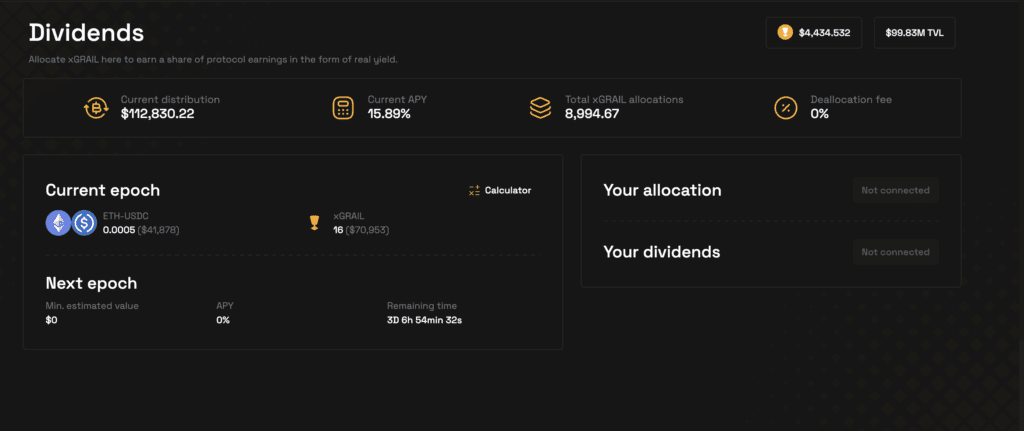Key Points:
- Arbitrum DEX Camelot said that its v3 AMM, which has been in the testing phase for the past two months, found a potential problem and has been mitigated.
- User funds are currently not at risk, but the DEX asks our community users to remove their positions in v3 as a security measure.
- The team decided to deprecate the current v3 AMM contract and will redeploy the new version with v3 farms soon.
The native DEX Camelot on the Arbitrum reported that it has just detected and corrected a bug with its beta v3 AMM.

There is now no danger to user cash, however to be on the safe side, the community is asked to withdraw their holdings in v3. Other contracts and v2 are unaffected.
Based on Algebra’s solution, the v3 AMM has been under beta testing for the last two months. According to the team, numerous concerns that were not mentioned throughout the multiple audits have been discovered during the procedure.
Camelot is a significant DEX project in the Arbitrum ecosystem that allows users to trade, swap, and exchange tokens and stablecoins. Camelot’s mission is to create a community-driven DEX with flexibility and sustainability that fulfills the increasing demand for user experience.
Unlike prominent DEXs such as Uniswap and SushiSwap, which all possess very liquid cross-chain asset combinations like as USDC/ETH or ETH/wBTC, Camelot is trying a novel strategy by courting liquidity. Accounts from other DeFi initiatives are available on the Arbitrum ecosystem via partnerships. With this strategy, users will gain in the long term as Camelot generates deep liquidity for themselves and the ecosystem.
AMM (Automated Market Maker) is the core product of the DEX. The AMM will feature a dual-liquidity mechanism to minimize slippage for users when trading both high volatility (altcoin) and low volatility (stablecoin) currency pairs.

In addition to dual-liquidity, the AMM also introduces a mechanism of “flexible transaction fees” that change based on market conditions and the protocol’s own intentions. This mechanism allows the transaction fee to be customized for each different currency pair, or also to be calculated differently based on the buying or selling direction.
Camelot delayed the v3 AMM for security checks and changes and opted to deprecate the present contract in favor of a new version, which will be deployed alongside the v3 farm.
The DEX said that it anticipates releasing the revised version shortly.
DISCLAIMER: The information on this website is provided as general market commentary and does not constitute investment advice. We encourage you to do your own research before investing.
Join us to keep track of news: https://linktr.ee/coincu
Harold
Coincu News















